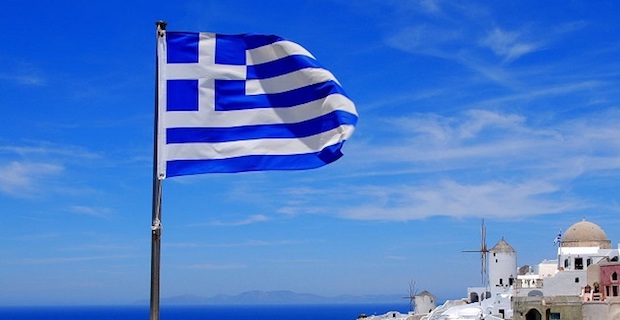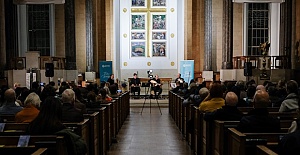Greece has emerged from its final three-year bailout program after eight years of rescue funds of more than €260 billion ($300 billion) lent by euro zone partners and the International Monetary Fund.
A program helped the country stay afloat but burdened Greeks with extra taxes, tough austerity measures while pushing many Greeks into poverty.
Private businesses shut down, while unemployment hit its lowest rate.
EU Commissioner for Economic and Financial Affairs Pierre Moscovici said Monday, “Greece can finally turn a page in a crisis that has lasted too long.
"The worst is over, the hardest work has been done, and the most difficult part is behind us” he added during a news conference.
Greeks, however, have a different opinion. There is no festive mood amongst those who believe it might signal stricter austerity measures.
Michalis Lignos, 78, and pensioner said nothing will change. “The measures will continue so what’s the difference?” he said.
“Citizens will soon feel the difference,” government spokesman Dimitris Tzanakopoulos said in a radio interview.
Maria Papa, 37, a private sector employee said “taxes will remain taxes, are they going to raise the minimum wage salary which is €586. How will families survive with these salaries.
Papa said in her work since the crisis, 12 people have lost their jobs or have gone part-time.
Prime Minster Alexis Tsipras is expected to give a speech Tuesday from the island of the Ionian Sea, Ithaca.
In April 2010, former Prime Minister George Papandreou gave a speech from the Aegean island of Kastellorizo asking for the rescue package from its partners and the International Monetary Fund.


 After Nesil Caliskan a by-election will be held in Jubilee ward in Enfield
After Nesil Caliskan a by-election will be held in Jubilee ward in Enfield Publishing the analysis, Labour’s Cllr Ergin Erbil said Everybody in Enfield deserves basic rights
Publishing the analysis, Labour’s Cllr Ergin Erbil said Everybody in Enfield deserves basic rights Gaza-Israel conflict Statement from Cllr Ergin Erbil, Leader of Enfield Council
Gaza-Israel conflict Statement from Cllr Ergin Erbil, Leader of Enfield Council Cllr Ergin Erbil was elected as the new Leader of Enfield Council
Cllr Ergin Erbil was elected as the new Leader of Enfield Council The European Union called on Turkey to uphold democratic values
The European Union called on Turkey to uphold democratic values Turkish citizens in London said Rights, Law, Justice
Turkish citizens in London said Rights, Law, Justice The Council of Turkish Cypriot Associations Geneva response letter
The Council of Turkish Cypriot Associations Geneva response letter Sustainable Development and ESG, Will This Become the Course for Turkic World
Sustainable Development and ESG, Will This Become the Course for Turkic World Saran Media And Euroleague Basketball Extend Media Rights Partnership for Four More Years
Saran Media And Euroleague Basketball Extend Media Rights Partnership for Four More Years Will Rangers be Jose Mourinho’s next victim?
Will Rangers be Jose Mourinho’s next victim? Jose Mourinho's Fenerbahce face Rangers on Thursday
Jose Mourinho's Fenerbahce face Rangers on Thursday Inzaghi stated that they felt the absence of our national player Hakan Çalhanoğlu
Inzaghi stated that they felt the absence of our national player Hakan Çalhanoğlu Barclays has become the biggest UK lender so far to cut mortgage rates
Barclays has become the biggest UK lender so far to cut mortgage rates THE SPRING STATEMENT EXPLAINED, UK ECONOMIC OUTLOOK AND GROWTH FORECASTS
THE SPRING STATEMENT EXPLAINED, UK ECONOMIC OUTLOOK AND GROWTH FORECASTS Launch of Made in Enfield gift shop to celebrate local artists and designers
Launch of Made in Enfield gift shop to celebrate local artists and designers Trial used smart Wi-Fi sensors for live building occupancy data to optimise
Trial used smart Wi-Fi sensors for live building occupancy data to optimise
















